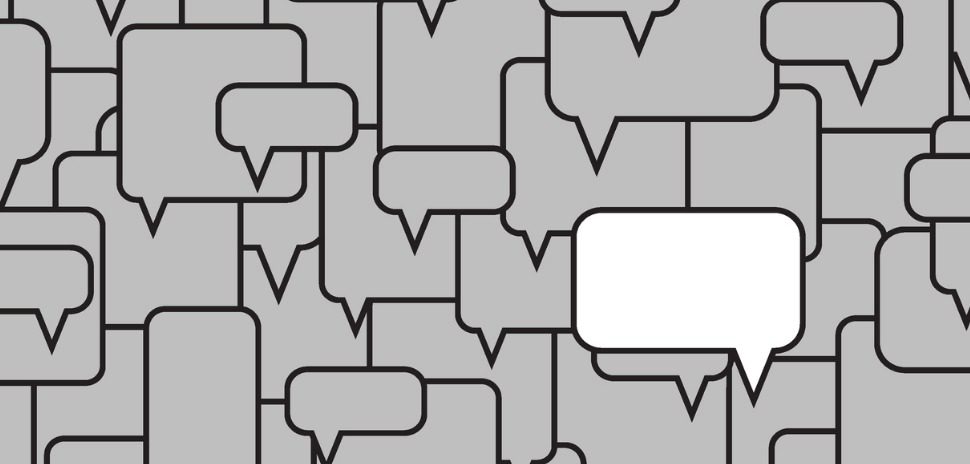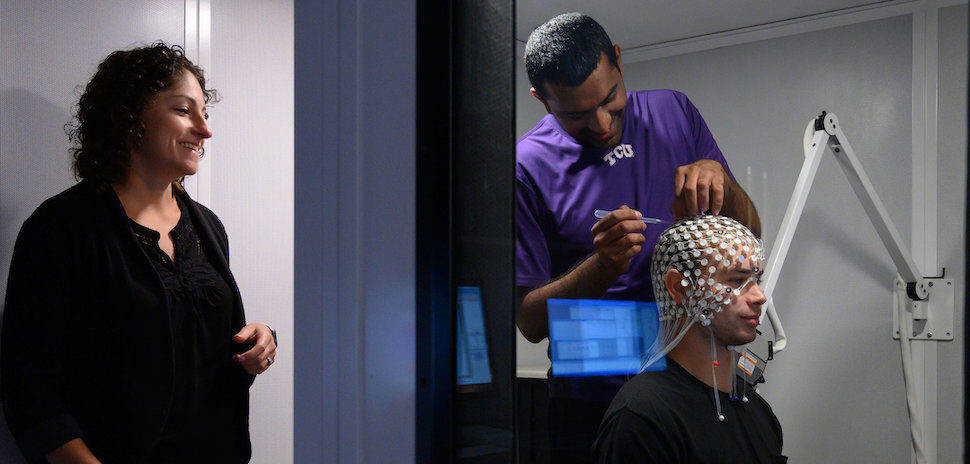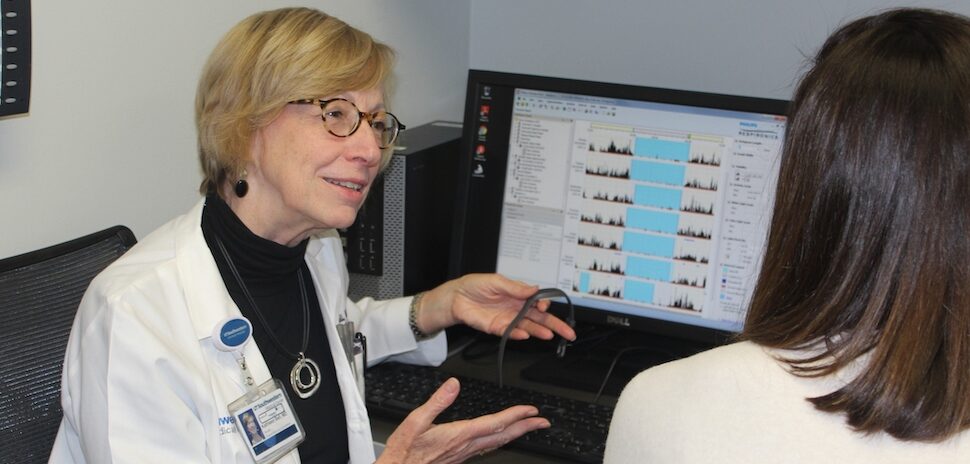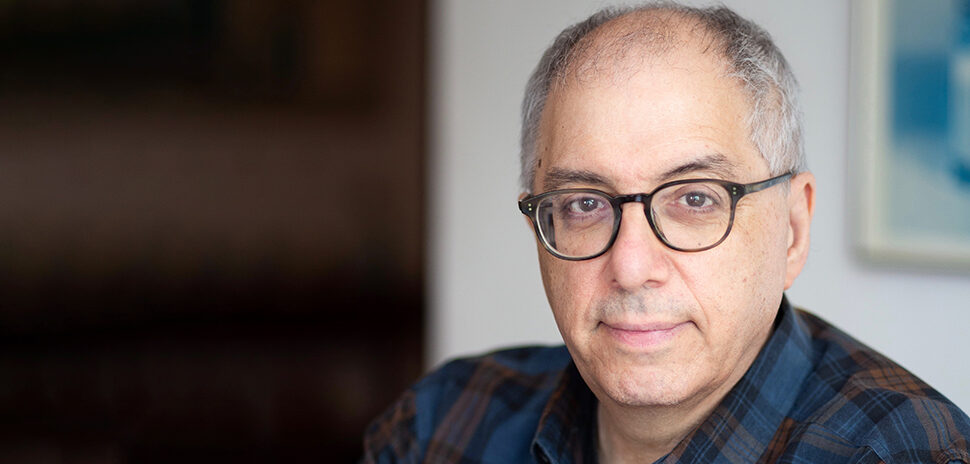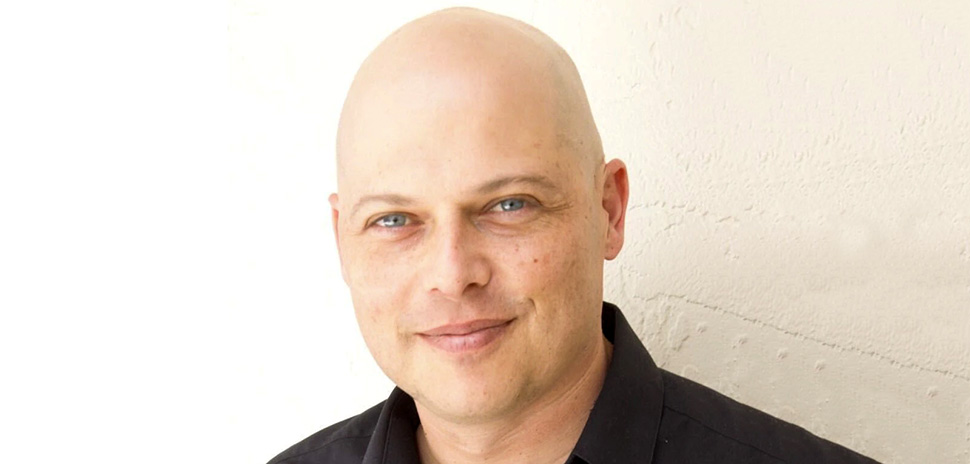
Guy Golan is an associate professor at Texas Christian University. [File photo]
“When we consume online information, most people make a decision about the content that they’re viewing within a few seconds, nanoseconds.”
Guy Golan
Associate Professor
Texas Christian University
.…on why sharing online articles doesn’t make people experts, via the Dallas Morning News.
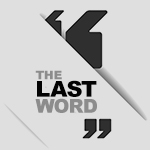 Researchers at UT Austin published a study in July called “I share, therefore I know? Sharing online content—even without reading it—inflates subjective knowledge.” The study, published by the Society for Consumer Psychology, explored how sharing online content affects what people think they know.
Researchers at UT Austin published a study in July called “I share, therefore I know? Sharing online content—even without reading it—inflates subjective knowledge.” The study, published by the Society for Consumer Psychology, explored how sharing online content affects what people think they know.
Turns out, they think they know a lot—which isn’t necessarily the case at all.
Golan, who wasn’t involved in the study, told the DMN’s Adithi Ramakrishnan that it actually takes time to increase one’s social media literacy, instead of simply scanning a story and sharing it online.
“When we consume online information, most people make a decision about the content that they’re viewing within a few seconds, nanoseconds,” Golan told DMN. “And I think the first initial step is to encourage people to spend a little more time with the information.”
Golan believes people should hit the pause button before sharing something on social media. He told the DMN they should ask themselves 3 questions: What’s the source of the info; is it trustworthy; and does the shared headline explain enough to make it worthy of passing along to others?
For more of who said what about all things North Texas, check out Every Last Word.

Get on the list.
Dallas Innovates, every day.
Sign up to keep your eye on what’s new and next in Dallas-Fort Worth, every day.
R E A D N E X T
-
Read “who said what” in our roundup of quotes about all things North Texas, including ENO8's Jeff Francis; MyndVR's Chris Brickler and Ted Werth; Axxess' John Olajide; the Urban Land Institute's Ron Pressman; Dallas Mayor Eric Johnson; the Mavs Foundation's Katie Edwards; UT Arlington's Yi Hong; HomeUSA.com's Ben Caballero; ParkHub's George Baker Sr.; and more.
-
The Centanni Lab at TCU has received a $10,000 grant from the GRAMMY Museum for a study exploring connections between musical instruction and brain improvements that might help with dyslexia. "We've found in the last few years that there may be some overlap here—a really interesting way of using our knowledge about musical training to learn some more about what's happening in the brain in individuals that have dyslexia," Dr. Tracy Centanni told Dallas Innovates.
-
The eighth annual HackDFW, powered by Say Yes to Dallas and presented by Google, connected hundreds of aspiring technologists to several Fortune 100 companies. It was a unique 48-hour marathon that challenged more than 550 people from 80 universities. Tech teams created ways to innovatively tackle waste management, climate change, better understand decisions from the Supreme Court, and much more.
-
As many North Texans try to move on from the pandemic, Dr. Bell is focused on the "tens of millions of patients" who've developed long-haul COVID—and who are experiencing life-altering symptoms long after their COVID-19 infection cleared.
-
Levy has been writing about technology for more than 30 years. A founding writer at Wired, he's widely considered to be the premier tech journalist in the U.S. He’s covered the digital revolution since the early 1980s, reporting every major trend and profiling its key figures. Today, as a keynote speaker on the closing day of Dallas Startup Week, he took stock of how we got here—and what's next.
 Researchers at UT Austin published a study in July called “I share, therefore I know? Sharing online content—even without reading it—inflates subjective knowledge.” The study, published by the Society for Consumer Psychology, explored how sharing online content affects what people think they know.
Researchers at UT Austin published a study in July called “I share, therefore I know? Sharing online content—even without reading it—inflates subjective knowledge.” The study, published by the Society for Consumer Psychology, explored how sharing online content affects what people think they know.![]()











